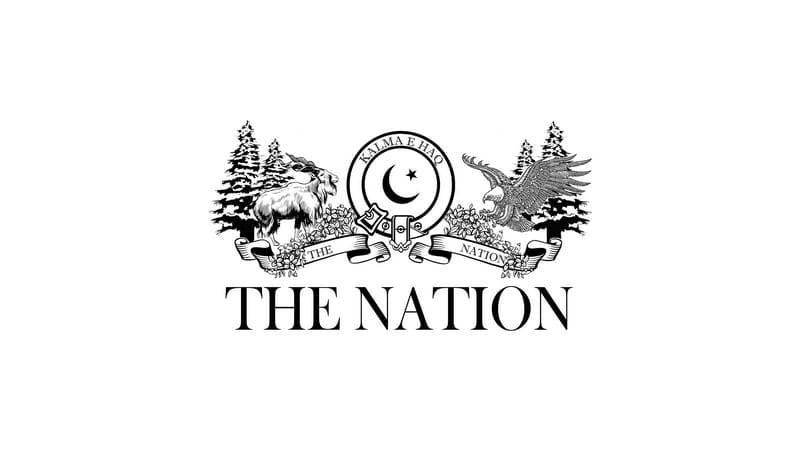Main Points In Hindi (मुख्य बातें – हिंदी में)
-
कपास उद्योग का पतन: पाकिस्तान, जो पहले एक समृद्ध कपास उद्योग का ध्वजधर था, अब अमेरिकी कपास का सबसे बड़ा आयातक बन गया है, जो इस क्षेत्र के गंभीर संकट का संकेत है।
-
अर्थव्यवस्था पर प्रभाव: घरेलू कपास की फसल में विफलता और नीति बनाने में कमी ने पाकिस्तान के कपड़ा क्षेत्र को खतरे में डाला है, जिससे संयुक्त आर्थिक चिंताओं, जैसे कि विदेशी मुद्रा भंडार में कमी और रोजगार सृजन में बाधा उत्पन्न हो रही है।
-
जलवायु परिवर्तन की चुनौतियाँ: पाकिस्तान जलवायु परिवर्तन के प्रभावों से बुरी तरह प्रभावित है, जिसमें अनियमित मौसम और मिट्टी का क्षरण शामिल हैं। इसके लिए प्रभावी शमन नीतियों की आवश्यकता है, अन्यथा यह संकट अन्य क्षेत्रों में भी फैल सकता है।
-
नीति सुधार की आवश्यकता: नीति निर्माताओं को तत्काल सुधारों की आवश्यकता है, जैसे कि घरेलू फसल की लचीलापन बढ़ाना, किसानों के लिए समय पर सहायता सुनिश्चित करना, और जलवायु अनुकूलन उपायों को लागू करना, ताकि कृषि क्षेत्र की स्थिरता सुनिश्चित हो सके।
- भविष्य की अनिश्चितता: पाकिस्तान की अर्थव्यवस्था और वैश्विक व्यापार में इसकी स्थिति का भविष्य निर्णायक और सूचित कार्रवाई पर निर्भर करता है, और हर ग़लती देश को अपूरणीय क्षति के कगार पर ले जा सकती है।
Main Points In English(मुख्य बातें – अंग्रेज़ी में)
Here are the main points from the text:
-
Shift from Cotton Producer to Importer: Pakistan, once a proud protector of a prosperous cotton industry, is now the largest importer of American cotton. This significant change highlights the alarming trajectory of the country’s agricultural sector, which has traditionally been the backbone of its economy.
-
Threats to the Textile Sector: The failure of domestic cotton crops, combined with poor policies and failure to secure regional supply, jeopardizes Pakistan’s textile industry, a cornerstone of its export economy. Competing nations like Bangladesh and Vietnam are strategically positioning themselves to leverage changing production opportunities, putting Pakistan at risk of losing its competitive edge.
-
Impact of Climate Change: As one of the top ten most climate-sensitive countries, Pakistan is poorly prepared for the widespread effects of climate change, which exacerbate agricultural crises. Irregular weather patterns and soil erosion are growing threats, with the absence of strong mitigation policies potentially causing impacts to spread across other sectors.
-
Need for Urgent Policy Reforms: Policymakers in Pakistan must implement urgent reforms to strengthen domestic crop resilience, ensure timely support for farmers, and engage in meaningful climate adaptation measures. There is an imperative to avoid complacency or poor governance that could lead to further deterioration of the country’s agricultural heritage.
- Dependence on Decisive Action: The future of Pakistan’s economy and its position in global trade relies heavily on informed and decisive action. Time is of the essence, as each misstep pushes the nation closer to irreversible damage.


Complete News In Hindi(पूरी खबर – हिंदी में)
यह निराशाजनक और चिंताजनक दोनों है कि पाकिस्तान, जो कभी एक समृद्ध कपास उद्योग का गौरवान्वित संरक्षक था, अब अमेरिकी कपास का सबसे बड़ा आयातक होने का संदिग्ध गौरव रखता है। यह विकास सिर्फ एक गंभीर आँकड़ा नहीं है, बल्कि देश के कृषि क्षेत्र के खतरनाक प्रक्षेपवक्र की एक चेतावनी है – जिसे लंबे समय से इसकी अर्थव्यवस्था की रीढ़ माना जाता है।
घरेलू कपास की फसल की विफलता, साथ ही अदूरदर्शी नीतियों और क्षेत्रीय आपूर्ति हासिल करने में असमर्थता ने पाकिस्तान के कपड़ा क्षेत्र – जो इसकी निर्यात अर्थव्यवस्था की आधारशिला है – को खतरे में डाल दिया है। जैसे-जैसे बांग्लादेश और वियतनाम जैसे अन्य देश बदलते उत्पादन अवसरों का लाभ उठाने के लिए रणनीतिक रूप से खुद को तैयार कर रहे हैं, पाकिस्तान को अपनी प्रतिस्पर्धात्मक बढ़त खोने का खतरा है। आर्थिक निहितार्थ गहरे हैं, विदेशी मुद्रा भंडार और रोजगार सृजन दोनों प्रभावित हो रहे हैं।
कोई भी जलवायु परिवर्तन के कारक को नजरअंदाज नहीं कर सकता, जिसने कृषि संकट को बढ़ा दिया है। शीर्ष 10 सबसे अधिक जलवायु-संवेदनशील देशों में से एक, पाकिस्तान इस वैश्विक चुनौती के व्यापक प्रभावों के लिए बुरी तरह तैयार नहीं है। अनियमित मौसम के मिजाज से लेकर मिट्टी के क्षरण तक खतरे बढ़ रहे हैं, फिर भी मजबूत शमन नीतियां स्पष्ट रूप से अनुपस्थित हैं। त्वरित कार्रवाई के बिना, यह मुद्दा अन्य क्षेत्रों में फैल जाएगा, जिससे देश के आर्थिक और सामाजिक संकट और गहरे हो जाएंगे।
नीति निर्माताओं के लिए तत्काल सुधार करना अनिवार्य है। घरेलू फसल लचीलेपन को मजबूत करना, किसानों के लिए समय पर सहायता सुनिश्चित करना और सार्थक जलवायु अनुकूलन उपायों में संलग्न होना अब वैकल्पिक नहीं है – वे अस्तित्व संबंधी आवश्यकताएं हैं। देश आत्मसंतुष्टि या खराब शासन को अपनी कृषि विरासत को और अधिक बर्बादी की ओर ले जाने का जोखिम नहीं उठा सकता।
पाकिस्तान की अर्थव्यवस्था का भविष्य और वैश्विक व्यापार में उसकी स्थिति निर्णायक और सूचित कार्रवाई पर निर्भर करती है। घड़ी टिक-टिक कर रही है, और हर ग़लती हमें अपूरणीय क्षति के कगार पर ले जाती है।
Complete News In English(पूरी खबर – अंग्रेज़ी में)
It is both disappointing and worrying that Pakistan, which once proudly boasted a thriving cotton industry, now holds the dubious honor of being the largest importer of American cotton. This shift is not just a troubling statistic; it serves as a warning about the dangerous trajectory of the country’s agricultural sector, long considered the backbone of its economy.
The failure of domestic cotton crops, combined with poor policies and an inability to secure regional supplies, poses a serious threat to Pakistan’s textile industry, which is foundational to its export economy. As countries like Bangladesh and Vietnam strategically adapt to seize changing production opportunities, Pakistan risks losing its competitive edge. The economic implications are severe, impacting both foreign exchange reserves and job creation.
One cannot overlook the factors of climate change that have exacerbated the agricultural crisis. As one of the top 10 most climate-sensitive countries, Pakistan is ill-prepared for the wide-ranging effects of this global challenge. From unpredictable weather patterns to soil erosion, the threats are on the rise, yet robust mitigation policies are clearly lacking. Without prompt action, these issues will spill over into other sectors, deepening the country’s economic and social crises.
It is imperative for policymakers to implement immediate reforms. Strengthening domestic crop resilience, ensuring timely support for farmers, and engaging in meaningful climate adaptation measures are no longer options—they are essential for survival. The country cannot afford to let complacency or poor governance drive its agricultural heritage further into decline.
The future of Pakistan’s economy and its position in global trade hinges on decisive and informed actions. Time is ticking, and every misstep brings us closer to irreversible damage.




